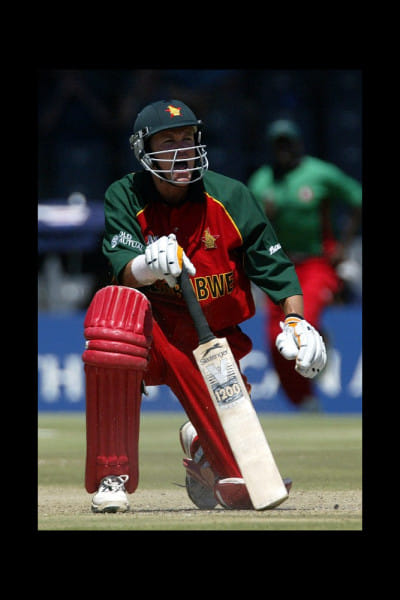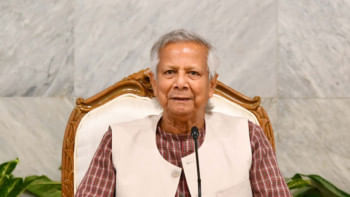The World Cup catches political heat

There was an uneasy peace before the 2003 World Cup got underway in South Africa and Zimbabwe. The lead-up to the tournament had seen debates about the moral rights and wrongs of staging matches in Zimbabwe, a one-party state with massive political and social issues. The main concerns centred on whether opposition groups might use the media coverage surrounding the tournament to stage protests, which could lead to more trouble. The controversy and security issues forced England to boycott their Harare game, but the real spotlight on the debate was thrown by two Zimbabwean players.
Shortly before the start of Zimbabwe's opening match against Namibia, the press were handed a statement from Andy Flower and Henry Olonga in which they announced they would be wearing black armbands to "mourn the death of democracy in Zimbabwe". They stressed their desire to make a silent and dignified gesture. None of their team-mates, with the exception of Flower's brother Grant, had an inkling of what was about to happen. The public were also unaware until, in the 22nd over, Flower walked out to bat wearing a makeshift black armband. Olonga was photographed on the players' balcony sporting his. The point had been made and the Zimbabwe authorities, used to clamping down on such signs of dissent brutally and immediately, had little response given the global spotlight on the event.
Olonga stated he was fully aware of the consequences. "If guys want to take me out they can," he said. "They know where I live." Both players also knew their international careers were over. Olonga was dropped, while attempts to do the same to Flower were quickly scotched when his team-mates threatened to strike. Black armbands gave way to black sweatbands, which were also worn by many in the crowd. In the end, both players bowed out after the tournament, Olonga ignominiously kicked off the team bus.

 For all latest news, follow The Daily Star's Google News channel.
For all latest news, follow The Daily Star's Google News channel. 



Comments